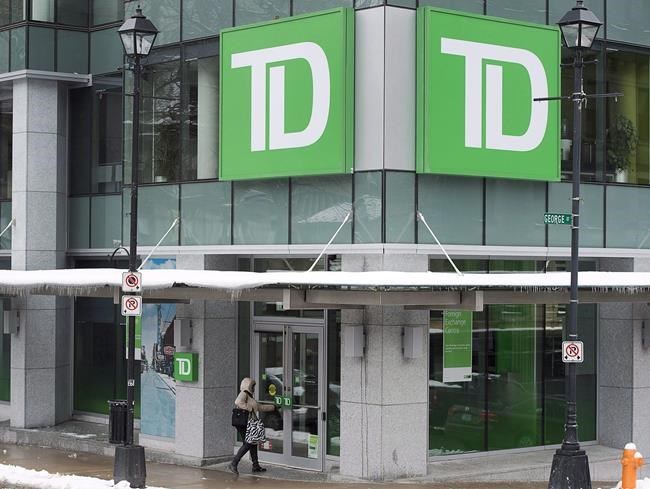TORONTO — Canada's economy is starting to rebound from the worst of the COVID-19 pandemic slowdown, but TD Bank Group's chief executive is warning that trouble may still lie ahead.
"The route to recovery won't always be smooth," Bharat Masrani told financial analysts on a Thursday conference call.
"The longer-term outlook is still uncertain and a measure of caution is warranted."
Masrani's comments came as his bank reported its third-quarter profit fell 30 per cent compared with a year ago.
The bank earned $2.25 billion or $1.21 per diluted share for the quarter ended July 31, down from a profit of $3.25 billion or $1.74 per diluted share a year ago.
Earnings improved from the second quarter when the bank reported a profit of $1.5 billion, due to volume growth, moderating credit provisions and strong wealth and wholesale revenues.
"TD entered this crisis from a position of strength and through prudent financial and risk-management practices, we remain well capitalized with a high-quality balance sheet and strong liquidity," said Masrani.
Revenue totalled $10.67 billion, up from $10.5 billion.
On an adjusted basis, TD said it earned $1.25 per diluted share for the quarter, down from $1.79 a year ago.
Analysts on average had expected an adjusted profit of $1.18 per share, according to financial markets data firm Refinitiv.
The bank was helped by higher insurance and wealth management revenues, but hampered by its continued efforts to protect itself from bad loans.
Provisions for credit losses reached $2.19 billion, up from $655 million a year ago, but down from $3.22 billion in the second quarter.
While TD was able to pull back on the amount of money it put aside for such provisions and saw a significant decline in requests from customers for loan deferrals, Masrani stressed that the bank is not in the clear yet.
The next quarter could bring a second wave of COVID-19 just as the federal government is ending the Canada Emergency Response Benefit and transitioning people facing hardships to a new Employment Insurance program.
"The unprecedented actions taken by the bank, our industry, governments, central banks and regulators have been critical in helping save off a deeper crisis, but these measures cannot be sustained indefinitely," said Masrani.
"As a bank and as a society, we must remain prudent, but also flexible and ready to adapt in real-time as the situation changes on the ground."
This report by The Canadian Press was first published Aug. 27, 2020.
Companies in this story: (TSX:TD)
Tara Deschamps, The Canadian Press



